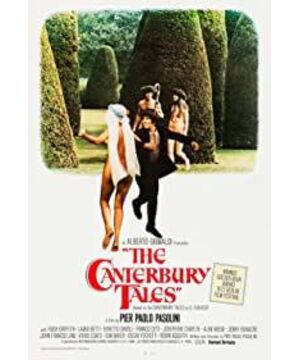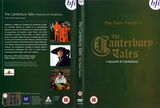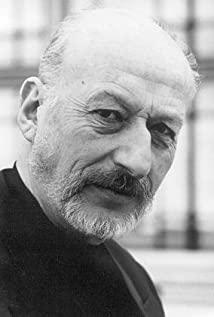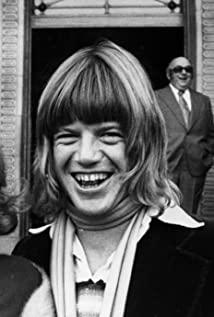This film is the second part of Pasolini's "Life Trilogy", the first being "Ten Days" and the last being "A Thousand and One Nights". These three films are based on the original works of world literature. The original work of "Decameron" is known as "The Song of Man", which is on par with Dante's "The Divine Comedy". The whole book runs through the red thread of humanism, criticizing the Catholic Church, praising the life of the world, praising love, condemning asceticism, exposing and criticizing The corruption and corruption of feudal nobles and monks and priests, and admiration for the ingenuity of commoners. The original book "One Thousand and One Nights" is an excellent literary work loved by people from all over the world. It combines reality and fantasy in a romantic way. Many stories praise the wisdom and courage of human beings, and describe the good people against evil forces. The indomitable spirit of struggle exposed and criticized the incompetence and dark corruption of the rulers, reflecting the dissatisfaction of the people with reality and their yearning for a better life. This collection of stories by Chaucer can be said to be the most outstanding realist poetry before the era of Shakespeare in England. It was deeply influenced by famous Italian Renaissance masters. The theme, structure and plot of many stories are the same as those of "Ten Days of Talk". Some of the stories are very similar, but this collection of poems is unique and extraordinary. It describes the complexity of people's pursuit of life in a variety of themes, genres, styles and tones, full of humor, but also has Profound philosophy can guide readers to ponder the relationship between people, people and destiny, and explore the philosophy of life. It can be seen that these three masterpieces have many things in common. To express people's life with movies, it can be said that the choice of these three works is more appropriate. Pasolini chose some stories in these works, exposed and criticized some things, praised and praised others, explored the purest roots of man, and explored the mystery of life, so he named it "Life Trilogy". ". Pasolini himself said: "I present to the audience the whole world, the feudal world, in which lust rules with the utmost depth and fervor. . . . You can compare, I'm going to show you, I'm going to tell you, I'm going to remind you."
In this film, like in the first "Ten Day Talk", sex is an important content, so some people call these three films "porn trilogy". Pasolini, like the original authors of these two books, believes that sex is an important aspect of human life. Sex and love are different, but have similarities. To express and explore human social life, we should Represent and explore this important aspect of being human. Old Sir Fuyuki suddenly thought of getting married and wanted a young body, but the young May he married could not find satisfaction in him, and actually made love to the young attendant in front of him. The fried cake seller saw sex scenes everywhere in the court. Nikolai dreams of dancing with naked girls. A woman in a red dress who has been married 5 times is still slutty. Two poor students in Cambridge not only expose the miller's hands and feet, but also succeed in having sex with his daughter and wife respectively, and so on. These are all depictions of sex in a stark naturalistic style. What exactly does this "suggest"? To "remind" what?
In the first story, the request of the old Sir Touyuki should be said to be a kind of lust, not a pursuit of love, because what he wants is a "young body". He satisfies his fleshly desires on the huge marriage bed, but cannot get love. Young May could not find love in the old sergeant either, she loved the young squire. They secretly made a secret plan, stole the keys, went to the garden where no one was allowed to enter, and took advantage of the opportunity of the old Sir's blindness to make love in the tree. This is May and the squire's love. Here, the film shows the requirements of several people in terms of sex. The old jazz wants the flesh, and the young May and the squire want love. What is desire? what is love? The video explains. The dying Sir can't meet May's request. When May gets real love, the old Sir can only forgive her, that is, his carnal desire can only give way to her love, which shows the director's position.
After explaining what love is, what the film wants to show is that love is a powerful force that cannot be suppressed. The scene that the fried cake seller saw in the palace illustrates this situation: the ban of the palace is severe, but the instinct of those young people cannot be suppressed. Even with the strict ban, people are still trying to find ways to meet the instinctive demands of such a person. After the film shows this, it is followed by a scene where the man is caught and burned alive. Then, the fire went out, and the people walked out silently without saying a word. The film creates a terrifying but solemn atmosphere here, expressing the resentment of people who witnessed the burning at the stake, and expressing people's silent condemnation of asceticism.
Love can be won, but it should be achieved by legitimate means. The legitimate pursuit can achieve the goal, and the pursuit of improper means is not love, but the corresponding revenge. Nikolai's spring dream shows his pursuit of love and his dream. He loves his master's wife. With his cleverness and wit, he has come up with a way to deceive his master, and the woman he loves has become a good thing. And the clerk in the church, although he also loves the same woman, he only has sweet words. It was an illegitimate pursuit, so he not only hit a wall, but also suffered a lot. He wanted to kiss the woman, but was insulted. The story doesn't end here. When the officer wanted to take revenge on the woman with a red-hot iron rod, Nikolai stuck out his ass, and was burned to the bitter end. This is really a seemingly absurd serial newspaper, but it expresses the author's clear attitude.
It can be seen from several stories that the description of sex in the film is an affirmation of this instinct of people. The film affirms people's requirements for sex, and affirms legitimate love. The film writes sex as something that is hard to kill by abstinence, hard to stop by moral creeds, impossible to achieve by coercion, can only go with the flow, and produce something that should be pursued. Nothing in common. In the Middle Ages when asceticism and religious morality prevailed, this is of course a view that affirms human nature, breaks the shackles of feudal religion, and has progressive significance. As part of a trilogy exploring life, it would be impossible for the film not to show this important aspect of human liberation.
In addition to the positive depiction of sex, the film also depicts social life in a humorous way, and depicts the struggle between justice and evil. Two poor Cambridge students were supposed to monitor the miller, but they "obtained something else", the mill. The Lord is "losing his wife and losing his army". The two students volunteered to monitor the miller, who had done many tricks and deducted a lot of flour when grinding wheat for Cambridge College. The miller did not stop at this time, but came up with a trick to let the students' horses run away. However, the last two students find the stolen flour, and the story ends with the victory of the students, the victory of good over evil. It is worth mentioning that the successful story of two students having sex with their mother and daughter is very similar to a story in "Ten Days of Talk". In "Ten Days of Talk", one of the two young people falls in love with a peasant's daughter, and the two decide to pretend that they have returned from a long way and cannot return to the city, so they have to stay. The peasant also had only one room. The young man got into his daughter's bed when the peasant was asleep. His accomplices also moved the cradle in front of the hostess' bed to his own bed. The difference is that when the peasant woman heard her husband's rage, she jumped to her daughter's bed and said that the young man said that his sex with his daughter was all nonsense after drinking too much. She had been sleeping on her daughter's bed to cover up the scandal. , everyone happily parted. From the fact that the two stories are so similar, it can be inferred that Chaucer may have imitated Boccaccio's story. But beyond this apparent similarity, there are important differences between the two stories. Chaucer's story adds to the miller's stealing of flour, and in the end, he gets punished and adds to the social dimension. "Ten Days" is to praise the beauty of love and the end of the family, and the focus of this film is that the miller is punished for his evildoing, making people feel that a person like the miller deserves such an end. The punishment here is not legal, but a "de facto" punishment, expressed in humorous style, with good retribution and evil retribution. Therefore, in addition to the praise of love, the film also exposes and criticizes the ugly phenomenon of society.
In addition to using humorous brushwork to express evil, the film also uses harsh brushwork to criticize evil. Three villains intrigue in an attempt to monopolize the gold coins and thus perish together fall into this category. There are many such stories in Chaucer's original works, but Pasolini chose only a few stories, which contain the meaning of punishing evil and encouraging good. Chaucer was very good at mocking people's shortcomings and mistakes, but he was not tolerant of evil, so he killed three villains in one stroke. His criticism is to educate readers and hope that people can become more rational and kinder people. Good and evil are also an important issue in human life. When describing these three villains, the film also adopts the same stern attitude as the original book, from the choice of character image, to the environment and the pain of the three people's death, it all shows this attitude.
Chaucer is a writer with a sense of humor. His descriptions of characters and events are funny and interesting, showing his love for life and people, as well as the interestingness of human social life itself. The film also intersperses some such episodes between several stories, such as the story of a thief and a policeman. The thief deceived the police twice, but life is complicated, and life has its own mechanism, so the thief who deceived the police was punished in the end.
In Chaucer's original work, there was a harshly critical attitude towards the church, and the same is true of the film. All members of the church are criticized in the film. Even the servants of the church were criticized, the one who kissed the butt and was insulted. The last story further shows the author's attitude towards the priest and the church. Criticism of the church is linked with the praise of love. In the Middle Ages, it was the church that suppressed sex and regarded it as the root of all evil. To explore and praise the nature of love was to criticize the church. Only by criticizing the church’s suppression of human nature could people enjoy this entitlement. At the time of Chaucer's creation, this argument was consistent with the general ideological tendencies of the Renaissance and was part of humanism. Today, centuries later, sex has not become a problem in Western society, but at the same time, the power of the church is still strong. As the highest representative institution of the Catholic Church, the Vatican published the revised latest "Catechism" in November 1992. The sexual aspect still requires "keeping the holiness of the flesh." When Pasolini made this film, in the face of religion, sex as a manifestation of human emancipation and human freedom was still a problem. He chose Chaucer's work criticizing the church to adapt it, and he still has a certain pertinence.
View more about The Canterbury Tales reviews











